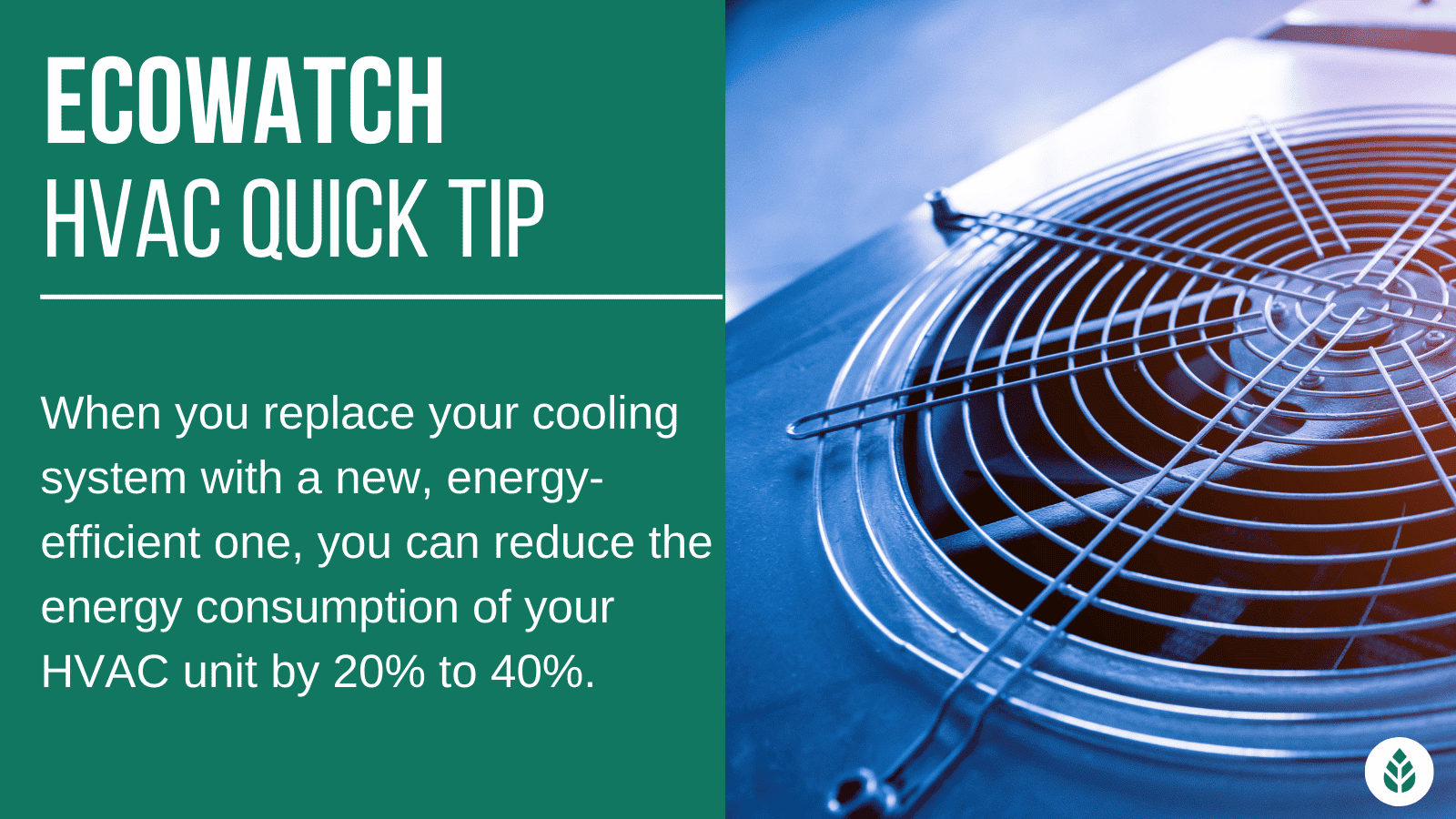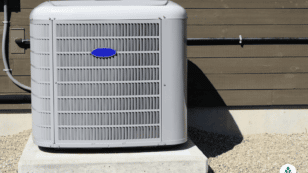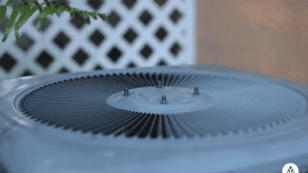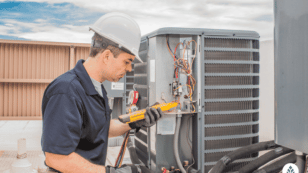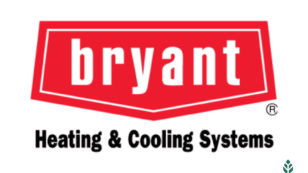
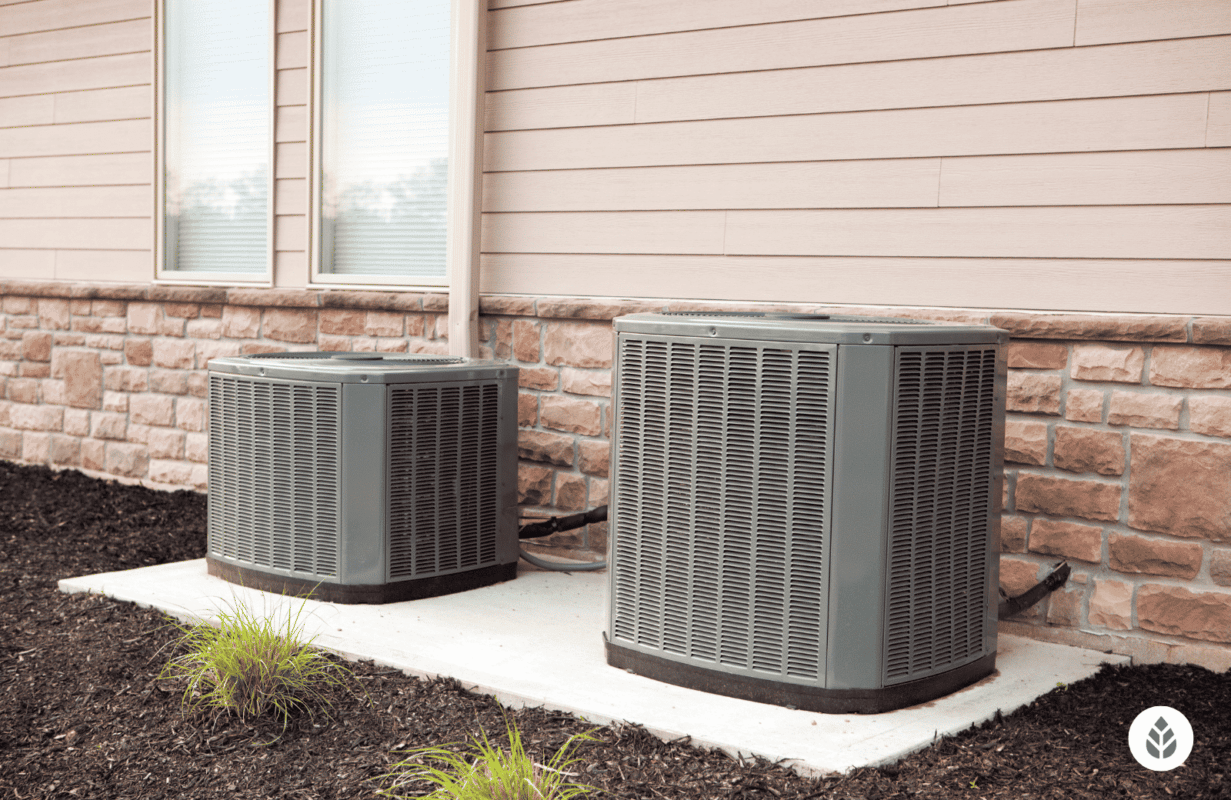
Top 5 HVAC Tips: A Guide to Staying Comfortable All Year (2024)
In this homeowner’s guide, we’ll answer:
- What HVAC systems are the most energy efficient?
- How can I make sure my HVAC system is running efficiently?
- What HVAC maintenance tips will keep my system running longer?
- What’s the best time of year to repair or replace my HVAC system?
Each product and or company featured here has been independently selected by the writer. You can learn more about our review methodology here. If you make a purchase using the links included, we may earn commission.
As a homeowner, you may not even think about your heating, ventilation and air conditioning (HVAC) system until something breaks. However, with a little knowledge and preparation, you can save time and money in the long run.
Our top five HVAC tips will help you stay on top of your maintenance and repairs so your HVAC system runs efficiently for years to come.
1. Choose a Green HVAC System to Reduce Energy Costs
Heating and cooling make up 55% of total household energy consumption in the U.S. That’s more than all other sources of residential energy use combined.1
When you replace your cooling system with a new, energy-efficient one, you can reduce the energy consumption of your HVAC unit by 20% to 40%. You can see some significant savings as a result.2
HVAC technology has advanced rapidly in the past few years, so there are far more options for sustainable HVAC systems than ever before, as well as grant programs to help you with the upfront costs.
If the time has come for you to get a new HVAC system installed, look for units that are Energy Star-certified and talk to your local installer about your home’s needs.
2. Improve the Efficiency of your HVAC System
If you’re not ready to install a new system, there are still ways that you can improve the efficiency of your home and current HVAC.
For starters, one easy way to save energy is to set the temperature on your thermostat down in the winter and up in the summer.
According to the U.S. Department of Energy, you can save up to 10% on heating and cooling costs by adjusting your thermostat 7°F–10°F warmer or cooler than usual during the day.
The easiest way to capture these energy savings is to install a programmable thermostat. This way, you can set your thermostat to automatically adjust at certain times of the day.3
Another way to lower your utility bills and use less energy is to weatherize your home.
Although new, energy-efficient windows and doors are the best way to seal out drafts, there are some quick, low-cost ways to prevent your heating and cooling from escaping outside.
For instance, you can apply window insulation kits to old windows, seal gaps in windows with caulk and add weatherstrips under your doors.
These simple weatherization measures will help your HVAC system run less often and more efficiently.
To learn more about installing a window insulation kit, you can watch the video below.

Carrier Heating and Cooling
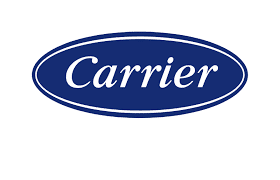
Regional Service
Average cost
Pros
- Wide availability (25+ states)
- Focus on energy efficiency
- Transparent about environmental impact
- Industry-leading company
Cons
- Weak or non-existent warranty
- More expensive than some competitors

ARS Rescue Rooter
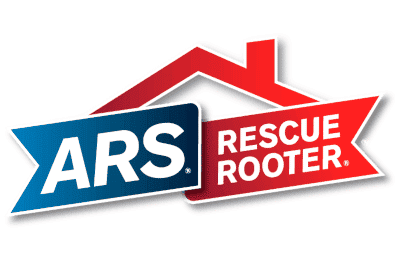
Regional Service
Average cost
Pros
- Focus on energy efficiency
- Positive customer reviews
- 15+ years in business
- Outstanding social impact
- Strong warranty
- Offers eco-home systems (heat pumps, solar, etc)
- Financing options available
Cons
- Available in fewer than 25 states

Service Experts Heating

Regional Service
Average cost
Pros
- Wide availability (25+ states)
- Positive customer reviews
- 15+ years in business
- Outstanding social impact
- Strong warranty
- Offers eco-home systems (heat pumps, solar, etc)
- Offers money-saving membership programs
Cons
- No emergency service
3. Get Your HVAC System Inspected at Least Once a Year
Regular maintenance and checkups are the best way to avoid system breakdowns and keep your HVAC in working order.
Preventative maintenance will prolong the life of your HVAC system and is far cheaper than a replacement or extensive repairs.
Ideally, you should have your heating system inspected in the early fall and your cooling system inspected in the early spring. This will ensure that you’re warm through the winter months and cool through the summer months.
Your HVAC technician will perform a basic tune-up on your heating and air conditioning system. This usually entails replacing your air filter, cleaning drains, coils and burners, checking electrical connections and lubricating moving parts.
Why Hire a Professional?
An HVAC contractor can detect broken or malfunctioning equipment that you may not be able to identify yourself.
For instance – Is there buildup in your ductwork? Does your refrigerant need to be replaced? Is the condenser in your AC unit in need of repair? Is your heat pump failing to generate warm or cool air?
If you’re not a professional, it’s easy to overlook HVAC problems like these. Hiring a professional will help you identify and solve problems before they become more serious.
4. Change Your Air Filter Every Three Months
Changing your air filter regularly is the easiest routine maintenance you can do for your HVAC – and it may also be the most valuable.
A dirty filter can restrict airflow, leading to poor indoor air quality and strain on your air conditioning unit. This strain can burn out the motor of your air handler, causing your AC system to overheat.
Although most HVAC companies recommend switching out your air filter every three months, if you have pets, have allergies or live in a dry or dusty environment, you may benefit from replacing your filter more frequently.
Here are some indicators that you need a new air filter for your HVAC system:
- Your electricity bill is higher than usual
- There is no cold air coming from your vents, or the air is not as cold as it should be
- There is more dust in your home or around your air vents than usual
- Your allergies are acting up
5. Replace Your HVAC System Every 10–25 Years
The typical lifespan of an HVAC system is 10–25 years. As an older system struggles to keep up with your heating and cooling needs, you will start to notice higher energy bills and inconsistent indoor temperatures and humidity levels.
So when is the best time to replace your HVAC system? It depends. You may think that replacing your air conditioning in the winter and your heating in the summer would be cheaper since it’s “off-season”, but that’s not necessarily true.
HVAC technicians tend to be busier during the hottest and coldest months of the year when fixing a broken system is more pressing. So you may be better off replacing your system in the fall or spring.
If you think it may be time to replace your HVAC system, talk to a professional. A trained HVAC technician can advise you on next steps for an HVAC repair or replacement.
If you’re looking for professional HVAC services, we’ve got you covered. Select one of our top providers below to get a free estimate for your HVAC repair or installation project.
FAQ: HVAC Tips
HVAC stands for heating, ventilation and air conditioning.
When installing and maintaining an HVAC system, homeowners should have their HVAC system inspected annually, change their air filter every three months and replace their HVAC system every 10–25 years.
You can reduce your HVAC’s energy usage by choosing Energy Star-certified HVAC units, weatherizing your home, installing a programmable thermostat and having your HVAC system inspected regularly.

 233k
233k  41k
41k  Subscribe
Subscribe 
